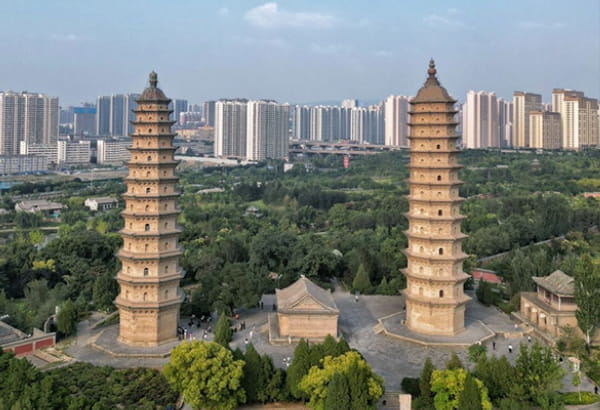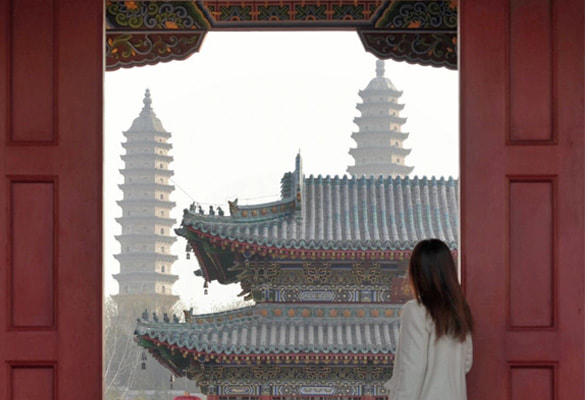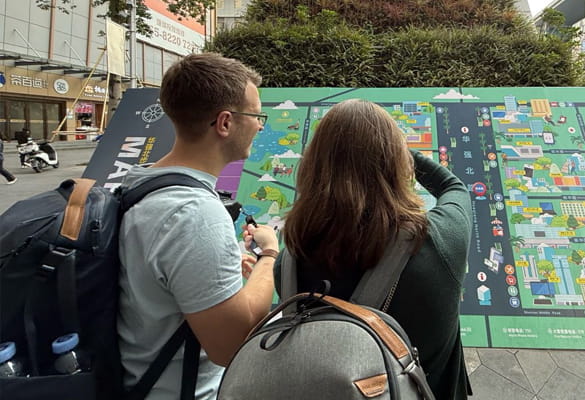Traveling to China can be an exhilarating experience, offering a blend of ancient history, modern innovation, and diverse landscapes. However, proper preparation is key to ensuring a smooth and enjoyable trip. Here’s a detailed checklist for foreign visitors.

1、Visa and Documentation
- Apply for a Visa Early: Most foreign nationals require a tourist visa (L Visa). Some cities offer a 144-hour transit visa on arrival, but it’s best to check with China’s embassy website for specific requirements, including passport validity (6+ months), invitation letters (if applicable), and flight/hotel bookings.
- Photocopy Important Documents: Make copies of your passport, visa, travel insurance, and emergency contacts. Store them separately from the originals.
- Register with Your Embassy: Many countries offer online registration for travelers abroad, ensuring quick assistance in emergencies.
2、Language Preparation
- Learn Basic Mandarin Phrases: While major cities have English signage, learning phrases like “Nǐ hǎo” (Hello), “Xièxie” (Thank you), and “Duōshǎo qián?” (How much?) helps in daily interactions.
- Download Translation Apps: Apps like Google Translate (with offline Chinese packs) or Pleco are lifesavers. Note that Google services (Gmail, Maps) are blocked in China, so consider using local alternatives like Amap or Baidu Maps.
3、Money and Payment Methods
- Set Up Mobile Payments: Alipay and WeChat Pay dominate China’s cashless society. Link these apps to your foreign credit card or ask a Chinese friend to help with a temporary “Tour Pass.”
- Carry Some Cash: A few small vendors in remote areas may only accept cash (Renminbi, RMB). It’s advisable to exchange currency at banks or airports.
- Notify Your Bank: Inform your bank about your travel dates to avoid card blocks for “suspicious” overseas transactions.
4、Internet Access
- Get a VPN Before Arrival: Popular Western platforms (Facebook, Instagram, WhatsApp) are blocked. Install a reliable VPN (e.g., ExpressVPN, NordVPN) on all devices before entering China.
- Buy a Local SIM Card: Purchase a prepaid SIM at airports or China Mobile/Unicom stores. Data plans are affordable (e.g., ¥100 for 20GB/month).
5、Cultural Etiquette
Respect Local Customs:
- Avoid publicly advocating for sensitive political positions (e.g., on Taiwan/Tibet issues). While Western media often reports on these topics, much of the coverage is misleading or inaccurate.
- Present gifts or business cards with both hands as a sign of respect.
Dining Manners:
- Don’t stick chopsticks vertically in rice (resembles funeral rituals).
- Try local delicacies politely, even if unfamiliar. Declining food may offend hosts.
Queueing and Personal Space: Public spaces can be crowded. Be patient in lines and avoid loud conversations in quiet areas.
6、Health and Safety
- Vaccinations: Consult your doctor about recommended vaccines (e.g., Hepatitis A).
- Pack Medications: Bring prescriptions and over-the-counter medicines (allergies, painkillers). Some Western drugs may be restricted or unavailable in remote areas.
- Travel Insurance: Ensure your policy covers emergencies, including hospitalization and medical evacuation.
7、Transportation Tips
- Download Navigation Apps: Use Baidu Maps or Amap (Chinese alternatives to Google Maps) for public transit routes.
- High-Speed Trains: Book tickets in advance via Trip.com or at stations. Trains are fast, punctual, and often cheaper than flights.
- Didi (Ride-Hailing): Install Didi Chuxing (China’s Uber) for taxis. Enable Alipay/WeChat Pay for fare payments.
8、Food and Dietary Needs
- Research Regional Cuisines: From Peking duck to Sichuan hotpot, China’s food varies widely. Use apps like Dianping (Yelp equivalent) to find highly rated restaurants.
- Communicate Dietary Restrictions: Learn to say “Wǒ bù chī…” (I don’t eat…) for allergies (e.g., peanuts, gluten). Vegetarians should specify “sùshí” (vegetarian), as many dishes use meat broth.
9、Accommodation and Connectivity
- Book Hotels with English Support: International chains (Marriott, Hilton) or platforms like Ctrip offer English services. Hostels are budget-friendly but may lack multilingual staff.
- Bring a Universal Adapter: China uses Type A, C, or I plugs (220V). A universal adapter ensures your devices stay charged.
10、Plan Your Itinerary Smartly
- Check Public Holidays: Avoid traveling during Golden Week (October 1–7) or Spring Festival (January/February), when attractions are overcrowded.
- Pre-Book Popular Sites: Major landmarks (Great Wall, Forbidden City) require online reservations. Use platforms like Klook to secure tickets.
- Explore Beyond Cities: Consider day trips to rural areas like Guilin’s rice terraces or the Yellow Mountains for a fuller cultural experience.
Final Tips:
- Stay Open-Minded: Embrace the unexpected—China’s charm often lies in its spontaneity.
- Carry Toilet Paper and Hand Sanitizer: Many public restrooms lack these.
- Keep Hotel Address in Chinese: Show it to taxi drivers if you get lost.
By preparing thoroughly, you’ll minimize stress and maximize your enjoyment of China’s wonders. Safe travels!






